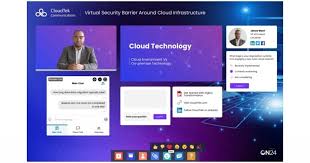Networking Platforms for Virtual Events
In today’s digital age, virtual events have become increasingly popular as a way to connect people from all over the world without the need for physical presence. One of the key components of any successful virtual event is the networking opportunities it provides. Networking platforms designed specifically for virtual events play a crucial role in facilitating meaningful connections among participants.
These networking platforms offer various features that mimic traditional networking experiences, such as:
- Virtual Lounges: Spaces where participants can gather informally to chat and network.
- Matchmaking Algorithms: Tools that help connect participants based on their interests, industries, or goals.
- One-on-One Meeting Scheduling: Features that allow attendees to schedule private meetings with each other.
- Group Discussions: Forums or chat rooms where participants can engage in group discussions on specific topics.
By leveraging these networking platforms, virtual event organizers can enhance participant engagement and create a more immersive experience. Participants can expand their professional networks, share knowledge, and collaborate with like-minded individuals from around the globe.
As virtual events continue to gain momentum, investing in robust networking platforms is essential for ensuring the success of these events. By providing attendees with valuable networking opportunities, organizers can deliver a more enriching and rewarding experience for all participants.
Top FAQs About Choosing and Creating Networking Platforms for Virtual Events
- How do I create a virtual event platform?
- What platform will you use to hold the virtual part of your event?
- What is the best platform for virtual event?
- How do you network a virtual event?
How do I create a virtual event platform?
Creating a virtual event platform involves several key steps to ensure a successful and engaging experience for participants. First, you need to select a reliable virtual event platform provider that aligns with your specific event requirements. Next, customize the platform to reflect your branding and desired features, such as networking tools, live streaming capabilities, interactive sessions, and attendee engagement metrics. It’s essential to test the platform thoroughly before the event to identify any potential issues and make necessary adjustments. Finally, provide clear instructions and support for attendees to navigate the platform seamlessly and maximize their networking opportunities during the virtual event.
What platform will you use to hold the virtual part of your event?
When considering the virtual aspect of your event, a common question that arises is, “What platform will you use to hold the virtual part of your event?” Selecting the right networking platform for your virtual event is crucial in ensuring a seamless and engaging experience for participants. Factors such as ease of use, interactive features, customization options, and scalability should be taken into account when choosing the platform that best suits your event’s objectives and audience. By carefully evaluating different platforms and their capabilities, you can create a dynamic virtual environment that fosters networking, collaboration, and overall event success.
What is the best platform for virtual event?
When it comes to selecting the best platform for a virtual event, the answer depends on various factors such as the event’s specific goals, target audience, budget, and desired features. There is no one-size-fits-all solution, as different platforms offer unique advantages and functionalities. It is essential to carefully evaluate the options available, considering aspects like ease of use, customization capabilities, networking features, technical support, and scalability. Conducting thorough research and possibly seeking recommendations from industry experts can help in determining the most suitable platform that aligns with the specific requirements and objectives of the virtual event.
How do you network a virtual event?
Networking at a virtual event involves leveraging the various tools and features provided by networking platforms to connect with other participants. To network effectively at a virtual event, attendees can start by creating a compelling profile that highlights their expertise, interests, and goals. Engaging in virtual lounges, participating in group discussions, scheduling one-on-one meetings with other attendees, and utilizing matchmaking algorithms are effective ways to initiate and strengthen connections. By actively participating in these networking opportunities and being open to engaging with others, attendees can expand their professional network and make meaningful connections at virtual events.

